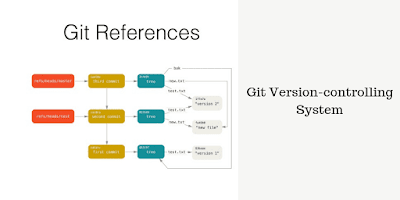How docker is helping IT Professionals?
How docker is helping IT Professionals?
Today, there is a buzz all around about
Docker and containerization in general. But the question is what docker is exactly, and why did it
become so popular among IT Professionals?
Docker can be defined as a
platform that allows users to easily pack, distribute and manage applications
within containers. Or it can be defined as an open-source project that
automates the deployment of applications inside software containers.
Running applications in
containers instead of virtual machines are becoming trends in the IT world. The
technology is considered to be one of the fastest growing in the industry. It
allows developers to package up an application with all the parts it needs in a
container, and then work with it as one package
Docker is the replacement for virtual machines?
Well, Docker cannot be introduced
as a replacement of the virtual machine, If you want full isolation with
guaranteed resources, a virtual machine is a way to go. If you just want to
isolate all the processes from each other and want to run hundreds of them on a
reasonably sized host, then Docker seems to be the way to go.
Docker allows applications to be
isolated from each other into different containers with instructions for
exactly what they need to survive that can be easily ported from machine to
machine. Virtual machines also allow the same thing, and some other tools like
Chef and Puppet already exist to make rebuilding these configurations portable
and reproducible. While Docker has a more simplified structure compared to both
of these. Also, when we run Docker containers on a NON-Linux machine, they will
be run inside a virtual machine. So, both of them can be used as when required.
Why is the adoption of docker growing so fast and how it is helpful for
Developers?
Let’s move over the top
advantages of docker to understand it more efficiently.
Docker containers ensure
consistency among multiple developments, release cycles and standardizing your
environment.
One of the biggest advantages of Docker-based architecture application
is standardization. Docker provides frequent development, build, test, and
production environments. Standardizing service infrastructure across the entire
pipeline allows every team member to work on production parity environment. By
doing so, developers are more can efficiently analyze and fix bugs within the
application. This reduces the amount of time required on defects and thus,
increases the amount of time available for feature development. As we
mentioned, Docker containers allow you to
commit changes to your Docker
images and version control them(revisions). For example, if you want to perform
a component upgrade that breaks your whole environment, it is very easy to
rollback to the previous version of
Docker image. This whole process can be tested within minutes. Docker is fast, allows you to quickly make
replicas. Also, launching a Docker image is as fast as running a machine
process.
Docker also allows continuous Deployment and testing, and thus it
ensures consistent environments from development to production. Docker
containers are configured as to maintain all configurations and dependencies
internally. So, you can use the same container from scratch development to
production making sure there are no discrepancies or manual intervention.
If you need to
perform an update during a product’s release cycle, you can easily make the
required changes to Docker containers, test them, and implement the same
changes to existing containers. This kind of flexibility is another key
advantage of using Docker. Hence we can summarise that Docker allows you to
build, test and release images that can be deployed across multiple servers.
Even if new security is available, the process remains the same. You can apply
the changes and release it to the production.
If you are looking for Docker for DevOps training, please
visit below link:
For more info:
Call us : +1-800-543-5571
Mail us: training@itlearn360.com




Comments
Post a Comment